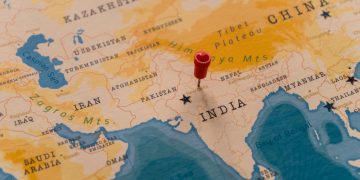The American P&I Club issued an alert, informing that the Maritime Safety Administrations (MSAs) in Hebei Province and Tianjin Municipality have both reportedly penalized a foreign ship for use of fuel with sulfur content over 0.5%. It is not clear at this stage how the vessel was penalized.
Reference is made to Circular No. 44/15 of 2015 entitled “The People’s Republicof China: Designation of Emission Control Areas”, informing that local maritime authorities in the People’s Republic of China (PRC) may require ships to use fuel with a sulfur content of no more than 3.5% during berthing, and may also implement other, more stringent, measures than the current emission control standard. The Circular also notes that some ports may impose a limitation of 0.5% by way of sulfur emission requirement.
It has been reported that, in conducting the supervision and inspection survey of the foreign vessel that arrived at Tianjin Port, the MSA officer suspected that the vessel was using non-compliant fuel. Sampling results showed that the sulfur content of the fuel of that ship was 0.866%, which exceeded the maximum content of 0.5%m/m.
This is the first reported case of the usage of non-compliant fuel in the PRC since the second and more stringent stage of control measures was implemented on January 1, 2017. The latest control measure requires ships to use fuel with a sulfur content of no more than 0.5% during berthing at key ports (excluding 1 hour after anchorage and 1 hour before departure).
Following the above referenced publicly reported case, there have been at least two other foreign flagged vessels that have been penalized by the MSA for allegedly using non-compliant fuel.
The American Club urges operators to comply with the latest low sulfur content requirement, in order to avoid any detention or other penalty, as it becomes understood that all of the 11 core ports, in the applicable ECAs, have started to implement the latest low sulfur content control measure and that local MSAs will strengthen inspections of ships berthing in port waters. Given these recently reported developments, it seems clear that the MSAs will continue to enforce the PRC ECA regulations and requirements vigorously.
Source: The American P&I Club

































































